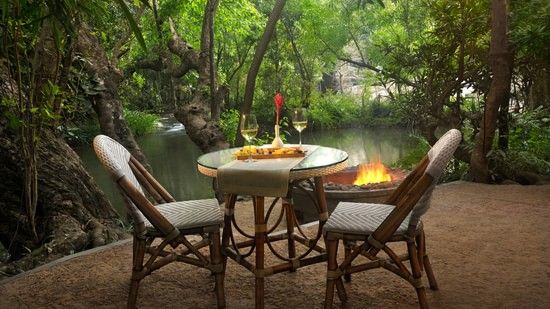- 5 Best Places to Buy Honey in Coorg
- Places to Buy Coffee in Coorg
- Best Pandi Curry in Coorg: Top Restaurants & Eateries
- Kailpodh Festival of Coorg
- The Ultimate Amanvana Experience: Discover Coorg Like Never Before
- The Sunken Spa at Amanvana Resort in Coorg
- The Vibrant Festivals of Coorg
- Residing at a Beautiful Resort Beside River Kaveri
- The Monsoon Diaries
- Coorg - The Summer Getaway
- A Tribute to the Myriad Roles of Women
- A Unique Holi Experience in Coorg
- Relive Romance at Amanvana
- Celebrate the Holiday Spirit At Amanvana
- Sheer Thai Delight at Amanvana
- 4 Authentic Coorgi Must-Buys & Souvenirs
- A Birdwatcher's Guide to the Beautiful Birds of Coorg
- A Guide to Visiting Coffee Plantations in Coorg
- 4 Must-Try Coorgi Delicacies
- Preserving Coorg: Paradise on Earth
- Your Definitive 3-Day Coorg Itinerary
- 5 Memorable Honeymoon Spots in Karnataka
- Top 5 Adventure Activities in Coorg
- Treat Yourself to a Fairy-Tale Getaway
- Top 4 Breathtaking Waterfalls in Coorg
- Mingle with Mother Nature at Amanvana Resort in Coorg
- Amanvana : The Artists Muse
- Celebrate the New Year in Coorg
Now, if you happen to be in Coorg around August or September and you see the Kodavas all dressed up, their cattle looking shinier than usual, and the guns oiled and gleaming, don’t be alarmed. You have walked straight into Kailpodh, one of the most spirited festivals of Coorg.
This is no small-town fair. It is a grand old festival, older than kings and courts, born from farming, hunting, and the belief that gratitude should be shown to both cattle and ancestors before you take up the spear again. .
What on Earth is Kail?
Here’s the funny thing. People often think Kail means a weapon. It doesn’t. It means a little flower bud. The sort of small green thing you’d step over without a second glance, unless you were a farmer. For them, this bud was the very voice of the earth. It said, “Your rice is growing strong, and if you treat me right, I’ll feed you come harvest.”
So Kailpodh isn’t about royal battles or glorious kings. It’s about buds on plants and the farmers who watch them. A humbler, older, and far more honest story.



The Preparations
On the eve of the festival, a pig is slaughtered. Don’t wrinkle your nose. Among the Kodavas, this is a noble gesture. The meat is roasted into Chutta Yerchi (smoked pork), and some is set aside for the ancestors. The living eat well, the dead are remembered, and the circle of family feels complete.
The Day of Kailpodh
The cattle, who have ploughed the fields all season, are bathed like kings. This is called Aanae Manja. Turmeric and oil are rubbed in, and then the beasts are fed Pani Putt, a sweet treat. It’s a fine day to be a cow in Coorg.
The weapons get their turn next. Spears (Barchi), arrows (Amb), guns, and nowadays even jeeps and tractors, all scrubbed up and dressed with Thok Poo, the flame lily. Back in the old days, those lilies weren’t just pretty. Hunters used their poison-tipped roots on arrows. Nature has its sharp edges.
Inside the home, in the sacred space called the Ainearoda, weapons are laid on a pine-leaf mat (Kinnole Palambh) under the central lamp (Nellaki). Pork curry, smoked meat, and fermented rice drink (Bolle Kall) are offered.
Then the family elder, the Pattedhara, performs the Baal Mangala. This is when weapons are passed to the young. The elder tells them stories, lays down advice, and warns them about responsibility. The boys listen wide-eyed, and for the first time they feel the weight of tradition in their hands.
Games that Look Like War
After the ceremonies, the village gathers in the Oor Mandh, the open ground. And then the fun begins.
- Thengae Bodi: A battle with coconuts.
- Baalae Bengo: Banana stems become swords and shields.
- Kall Maripuh: Mock fights with stones, and yes, that one sounds as dangerous as it is.
These games are played, but not mere play. They keep the Kodava spirit of courage alive, even when the rice is in the fields and the forest waits.
The Hunts that Follow
The festival does not end with a play. The real business comes after.
First, the Oor Botae - the village hunt in the sacred grove. Then the Naad Botae, when several villages band together. Hunters take up their roles:
- The Netthi Bill is the lead shooter.
- The Onti Bill hunts alone.
- The Thaang Bill stands as backup.
When the game is brought down, the meat is shared with fairness. The shooter takes the head and hind quarter (Batt). The finisher takes the loin (Beeyu). The rest is divided among hunters, and even the dogs get their share. After all, they worked just as hard.
Why It Matters
Kailpodh is not just about pigs, cattle, or play battles. It is about memory. It ties the farmer to his field, the hunter to his forest, the young to the old, and the living to the dead.It says: “We remember. We are grateful. We are strong.”
That is why it remains one of the most cherished festivals of Coorg. If you are staying at one of the fine resorts in Coorg, you may even get the chance to watch the celebrations yourself. And if your travels bring you to the banks of the river Kaveri, you will find Amanvana Spa Resort, a place where stories like these are treasured, retold, and lived again.